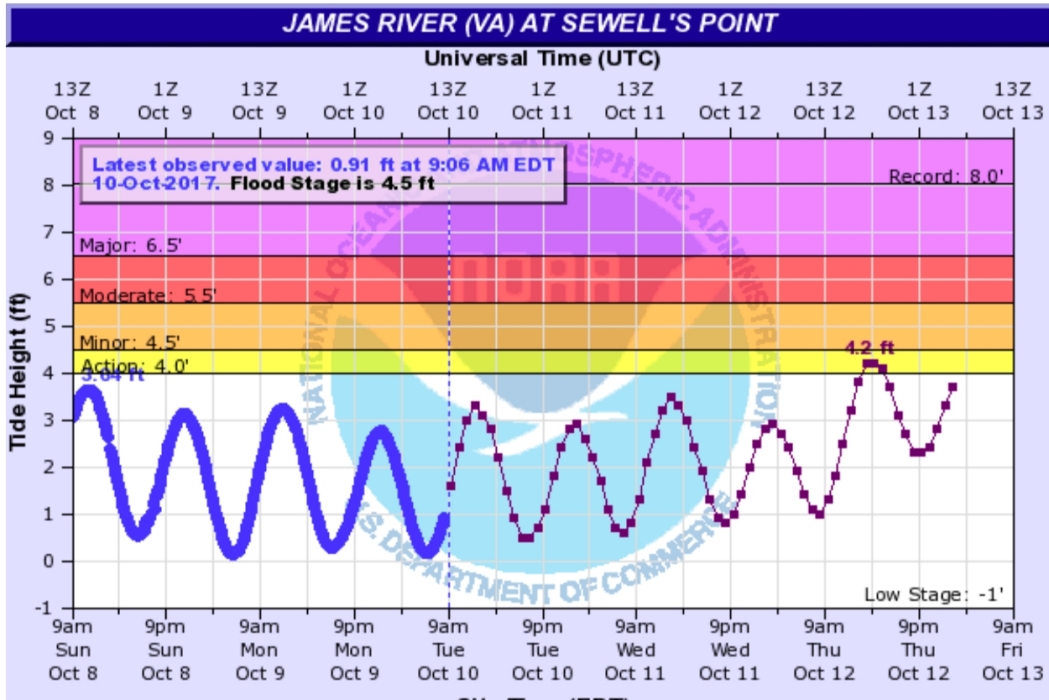ODU's Norfolk campus is sometimes affected by Tidal Flooding, which is a type of flooding not caused rain or storms, but by low elevation & natural tidal fluctuations.Transportation & Parking Services (TPS) has seen a steady increase in the number of Tidal flooding events and is working to mitigate and prepare for future events.
What is Tidal Flooding?
Tidal Flooding is the direct effect of low elevation and natural tidal fluctuations. Given our proximity to the Atlantic Ocean, local waterways often are negatively affected by Tidal Flooding. This type of flooding is not caused by excess rain or severe weather events, but can often affected by these types of events in addition to regular Tidal Flooding events.
National Weather Service
The National Weather Service (NWS) forecasts coastal flooding. There are 3 categories: Minor (4.5 feet), Moderate (5.5 feet), and Severe (6.5 feet) Coastal Flooding and each has a threshold that when surpassed, results in a Tidal Flooding event. The nearest NWS point of measurement to ODU is at Sewell's Point and TPS monitors this station's forecast regularly.
Whenever the forecasted Tide Height is in the orange zone or higher, ODU will experience some Tidal Flooding.
How does ODU manage Tidal Flooding Incidents?
TPS manages Tidal flooding several ways:
- Monitoring the NWS forecasts regularly
- Blocking off areas most commonly affected by Tidal Flooding with cones and signage
- Alerting students of affected areas and alternative parking locations
Parking Spaces that have been affected previously or are prone to Tidal Flooding due to elevation are marked off with cones and signs before, during, and after a potential Tidal Flooding event to prevent students from parking in those areas and flooding out their vehicles. Please do not move the cones or signs, or park in these areas. Even though it looks dry, it may not stay dry over time.
No, please do not park in any area that is marked off with cones and signage. Tidal Flooding fluctuates over time. While a parking space may be dry at the time you park your car, it could easily be flooded by the time you return.
Tidal Flooding is NOT caused by rainfall, but by the natural fluctuation of the ocean's tides. This means that although it may be sunny out, Tidal Flooding events can still occur.
The University does not close due to these types of events because it is not severely affected by Tidal Flooding events and these events do not affect the safety of students, faculty, and staff. See University Policy 1020 for more information.
Yes, hurricanes and tropical storms can affect the severity of Tidal Flooding. Even storms that do not directly impact Hampton Roads can affect Tidal Flooding; however, a storm directly impacting Hampton Roads will affect Tidal Flooding more than one that doesn't.
The campus parking areas that have been most affected by Tidal Flooding events so far have been Lots 1 & 11. (see Campus Parking Map)
Do NOT attempt to reach your car. Stay outside the flooded area and call for assistance. TPS is not responsible for any damage to vehicles in flooded areas.




